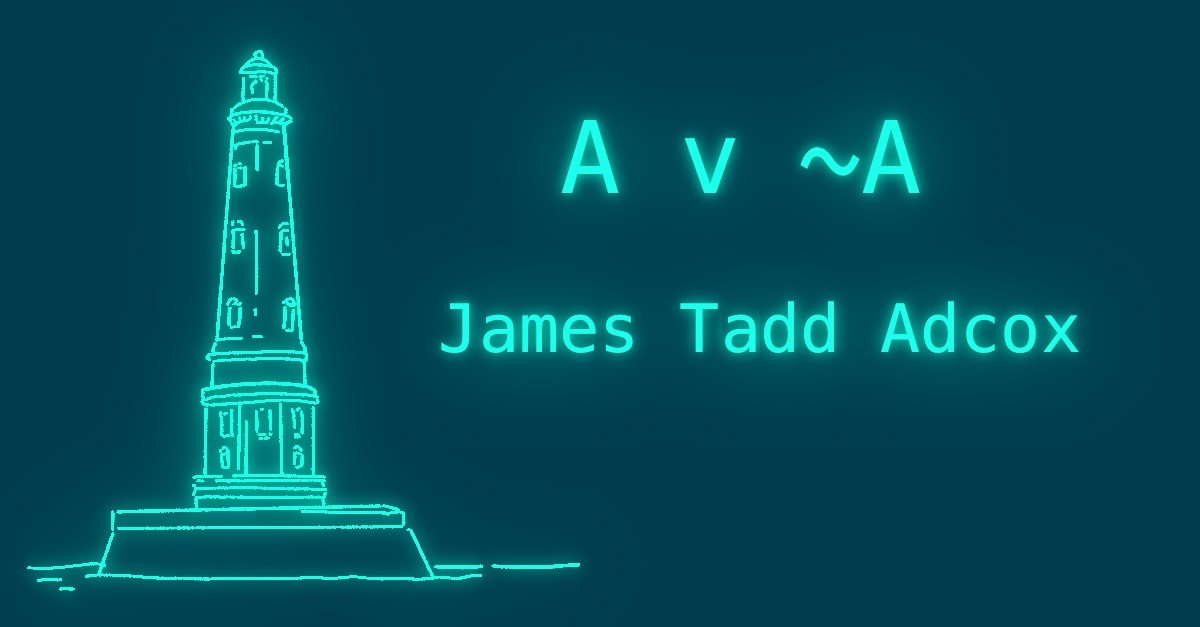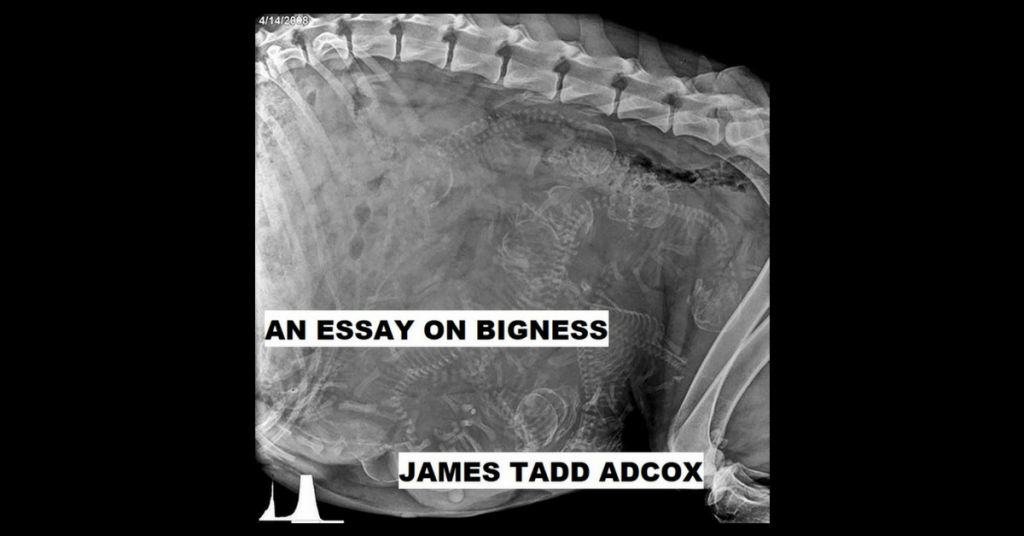
James Tadd Adcox
James Tadd Adcox’s work has appeared in 3:AM, Granta, and Passages North, as well as previously in X-R-A-Y. He is the author of a novel, Does Not Love, and a novella, Repetition, and is a founding editor at the literary magazine Always Crashing. A book of hybrid theater pieces, DENMARK, is available from Hem Press.


A v ~A by James Tadd Adcox

AN ESSAY ON BIGNESS by James Tadd Adcox
I am a man who never needs to do what other people tell him to do. I am so much bigger than they are. When someone tells me to do something, I give them a look. It is a calculated look. In this look, I share with them the artificiality that lies at the base of this interaction, and indeed all of our interactions. It is a look that says, “Whatever you might tell yourself about rights and authority, we both understand the physics of the situation. Perhaps, after you have told me to do a thing, I will do that thing; perhaps I will not; but do not confuse the telling and the doing.”
A smaller man, in similar circumstances, might refuse to do what he was told, or do the opposite, merely to show he could. I have no such need. I am vouchsafed by bigness. It is more impressive if I choose to do as I am told than if I refuse, since there is never any question whether or not I could have refused. When, for example, at the bank, the man behind the little window asks me to step aside for the next customer: I give him my look, then step aside. The man behind the little window is shaken. It is as though he observed a tornado pass by the house in which he stood, or the ground open up and swallow the person next to him (another man in a tie and light-blue shirt, behind another little window). If I had chosen to do otherwise, if I had allowed my bigness to erupt upon him, what protection would his window offer then? But I did not; how much more fearsome and remarkable that I did not.
I have met taller men than me, but they were not bigger than me: they were lanky, disproportionate, long rather than big. One never needs to look up at such men. Usually they’re hunched over, in any case. It goes without saying that I have met men fatter than me. And I have met men smaller than me who were nonetheless exceedingly muscled, men who emerge at irregular intervals from the gym so that they may be observed. They dehydrate themselves and wear shirts designed to draw attention to their arms. Their muscles are a layer they have placed over an anterior smallness. They can remember a time when they did not have muscles. They know there is a future in which their muscles will leave them.
My bigness is of a different order than these bignesses. My bigness is an essential bigness. There has never been a time when I was not big. Even in my cradle, the bars separating me from the space outside were a formality. As I learned to stand, gripping the leg of a chair, my parents looked on, nervous. They were not small people, neither my mother nor father, but in me they gave rise to a bigness that neither could comprehend. I don’t mean to say that I was grotesque as a child, please don’t misunderstand: I was child-sized, much smaller than I am now. But it was obvious that my child-size was its own form of bigness. Bullies avoided me; smaller children grouped themselves under my shadow, knowing I felt no need to prove myself. I have never needed to be anything other than polite.
Tall, beautiful women love me. I answer a certain anxiety they have felt all their lives, instilled by mothers and television commercials, regarding their tallness. Yet the women I prefer are extremely small. This is not because I like to push anyone around. I could push around much larger women or men, no problem. (Anyhow, I’m not that type of a guy.) It is, rather, that I enjoy the contrast: such a large man, such a tiny woman. At night I dream of perfect women, tinier and tinier, women that fit in my cupped hand, women dancing on the ridges of my fingerprint, becoming ever more perfect as they disappear.
On the street, I often step to the side for oncoming pedestrians, simply to see their reaction. Relief, mostly: and a kind of love.
